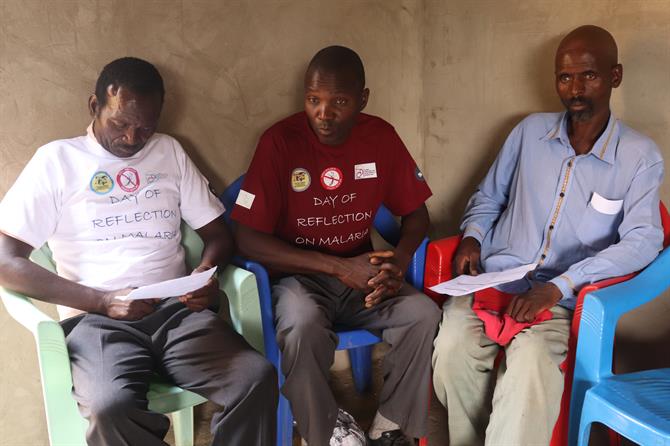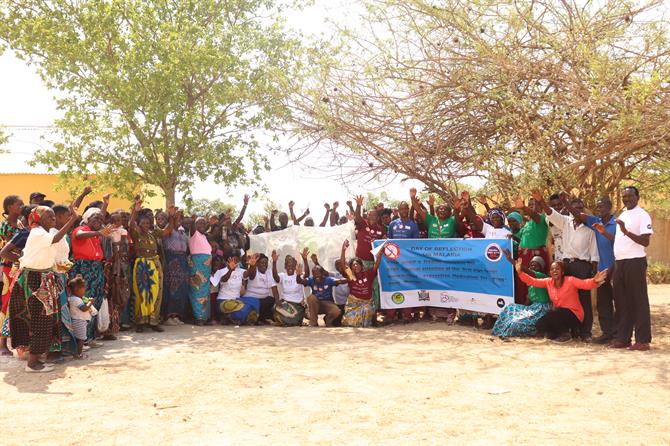
A community event in Chongwe capped-off a month’s long reflection on malaria in Zambia. Photo by Bernadette Nkhoma, Zambia Youth Federation.
In front of an audience of more than 100 people, a young man acts out the symptoms of malaria. The woman playing his mother takes him to see the medicine man character who prescribes ineffective roots. A few minutes later, both the young man and the medicine man characters end up in the hospital where they test positive for malaria and are counseled on completing their full course of medications.
The moral of the story is three-fold: seek treatment from a health provider at the first sign of fever, malaria strikes both the young and the old, and finishing medications helps prevent drug-resistant malaria.
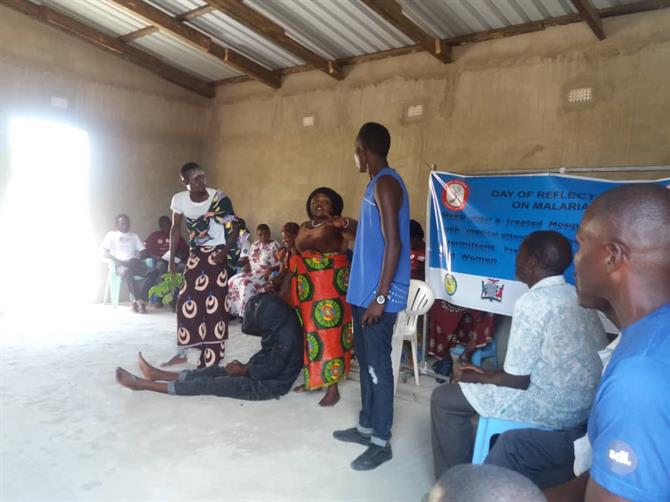
Members of the Zambia Youth Federation perform during the 2019 Day of Reflection on Malaria. Photo by Bernadette Nkhoma, Zambia Youth Federation.
This educational dramatization by the Zambia Youth Federation was designed to draw crowds during a Day of Reflection on Malaria held in Chongwe, Zambia. The November event was hosted by the People’s Process on Housing and Poverty in Zambia, Zambia Homeless and Poor People’s Federation, and ABESU Women’s Housing Cooperative. Attendees included two village headmen, two local teachers, and community members from six villages. Two local companies provided banners and water for the event.
In addition to the youth skit, the event included a presentation by a health worker from the local clinic on preventing and treating malaria. Community members were able to ask questions about malaria myths and see demonstrations on how to properly set up and sleep under an insecticide-treated bed net. Pregnant women were given new nets to take home.
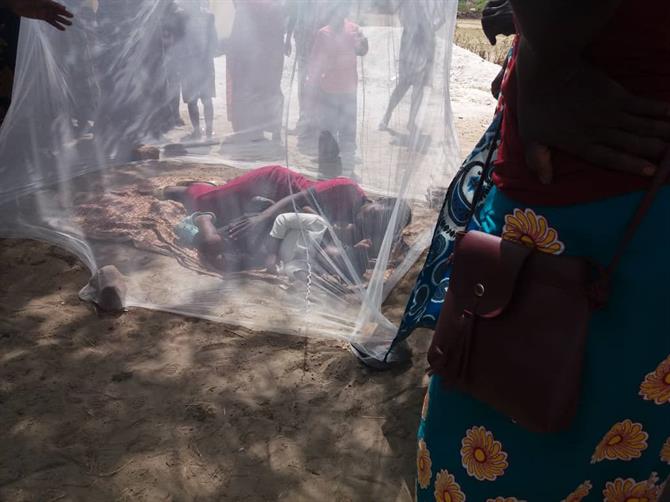
A mother and her children demonstrate how to sleep under a net during the Nov. 6 Day of Reflection on Malaria. Photo by Bernadette Nkhoma, Zambia Youth Federation.
Veronica Katulushi, National Health Facilitator of Zambia Homeless and Poor People’s Federations, spoke about how malaria contributes to poverty and reduces productivity: children missing school, parents missing work to care for their sick children or themselves, and people missing work to attend funerals.
Veronica was one of eight representatives from Zambia who had attended an August meeting in Arusha, Tanzania, organized by the U.S. President’s Malaria Initiative with funding from the Bill & Melinda Gates Foundation. Senior religious and community leaders from institutions with strong networks throughout their countries — particularly in hard-to-reach communities — were invited from Zambia, Rwanda, and Tanzania to discuss their existing resources, opportunities, and the challenges they face in the fight against malaria in their countries.
The November event was part of a larger Month of Reflection on Malaria organized by these senior leaders in Zambia as a result of the PMI-convened meeting in Arusha. The Girl Guides taught 650 girls about bed nets during their International Day of the Girl activities. The Baha’i community invited health professionals to promote good malaria practices among the 7,000 people participating in the two-day celebrations for the bicentenary of the birth of the founders of the Baha’i Faith.
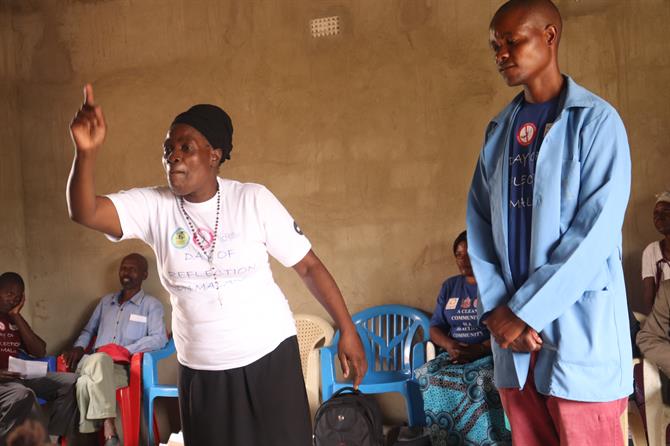
Veronica Katulushi, National Health Facilitator of Zambia Homeless and Poor People’s Federations, and a health worker from the Shiyala clinic tell the crowd about malaria treatment and prevention. Photo by Bernadette Nkhoma, Zambia Youth Federation.
At the event in Chongwe, Veronica reminded the crowd that the government of Zambia has set a target to end malaria by 2021 and created the National Malaria Elimination Center and an End Malaria Council.
She then called the community to action and asked them to do their part to achieve the target. Everyone was encouraged to pledge that they would share what they learned about malaria prevention and treatment with their families and neighbors. This community-level engagement and ownership of the problem, coupled with national-level commitment is vital to saving lives and ultimately end malaria in Zambia.

